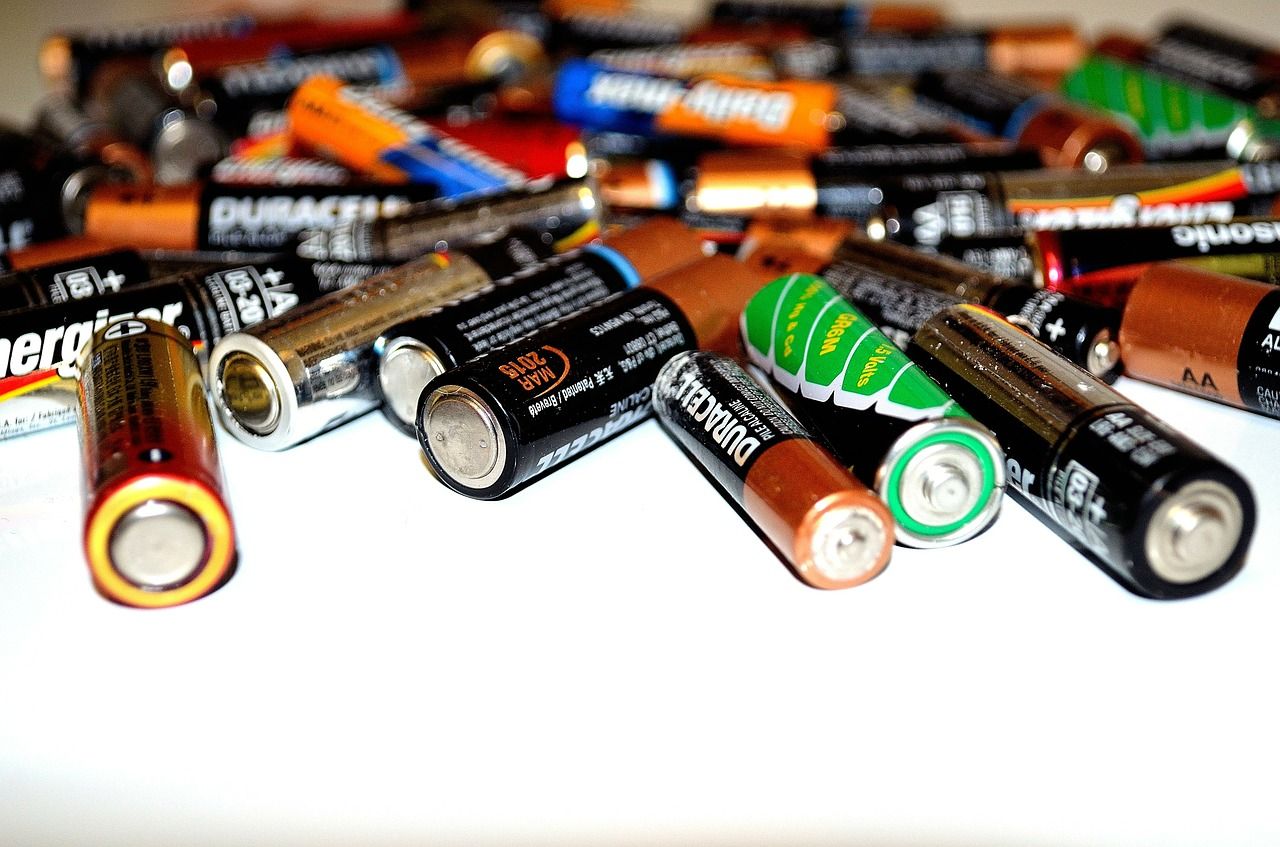
Figuring out what to do with all the used batteries in your life is no easy task. Many battery types contain mercury, a known carcinogen. So it's important to dispose of batteries properly when you're finished with them.
Rule number 1 is NEVER put batteries of any kind in your household recycling bin. While they do contain metal, some batteries pose serious risks and lead to explosions and fires in trucks and at recycling facilities.
So how do you dispose of batteries responsibly? That depends on the battery chemistry.
Traditional single-use batteries (those that can't be re-charged) are the easiest. These are your everyday AA, AAA, C, D and 9-volt batteries and their "chemistry" is either alkaline or lithium (not to be confused with lithium-ion, which is a whole different animal!). Both alkaline and lithium batteries are safe to throw in the trash.
Button-cell batteries are found in watches, hearing aids, toys, and other small portable devices. Starting in 2017, most manufacturers stopped adding mercury to button cell batteries. However, because these types of batteries last a long time, many are still in circulation. Check the label for "Hg," which means the battery contains mercury. Mercury is hazardous and should be disposed at a mercury collection point. Click here to find a drop-off site or call your municipal Board of Health.
Lithium-ion (Li-Ion) batteries are rechargeable and are considered to be the backbone of mobile electronics (cell phones, laptops) and cordless power tools. They do not contain mercury, but they are on the trash and recycling industry's "most unwanted" list because the risk of fire is so high. Click here to find a recycling dropoff location.
Other common household rechargeable batteries include nickel-cadmium (Ni-Cad) and nickel-metal hydride (Ni-MH). Ni-Cads are an economical battery but contain cadmium, which is toxic. Ni-MH batteries perform well in high-drain devices and are cadmium free, but they are expensive. Both types are used in cordless tools, cordless phones, digital cameras, and two-way radios. Find recycling locations here.
Mercury and rechargeable batteries fall under the federal Mercury-Containing and Rechargeable Battery Act and thus can be recycled for free through national product stewardship programs like Call2Recycle. This is an organization funded by battery manufacturers that collects and recycles or safely disposes of applicable batteries.
Unlike the rechargeable battery program, there is currently no national stewardship law for free recycling of single-use batteries such as AAA, AA, 9V, C, or D cell - except in Vermont. These batteries do not contain mercury, so when they are fully drained, throw them in the trash but not your recycling bin.
For more information on recycling options for all types of batteries, visit Call2Recycle.org.
Thank you to RecycleSmartMA.org for providing this information. Visit their website to learn more about best practices for recycling in Massachusetts.


